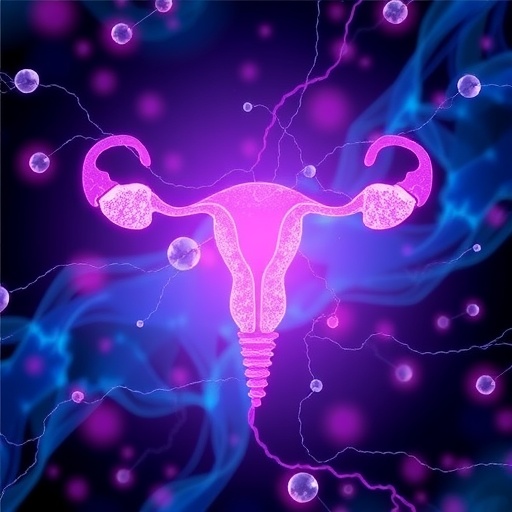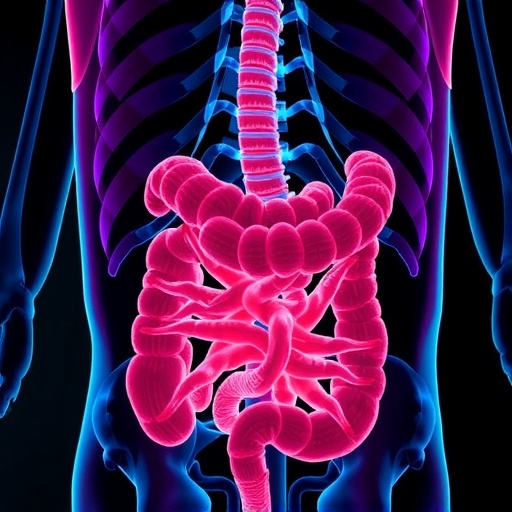
In the ever-evolving field of neuroscience, researchers are continually unraveling the intricate relationships between hormonal fluctuations and behavioral responses. This exploration has taken a compelling turn with a novel study that highlights the impact of ovarian hormones on fear responses, particularly during a critical phase known as fear extinction. The research conducted by Hohorst, Tanner, Han, and their colleagues delves into the mechanics of how heightened levels of ovarian hormones can mitigate fear relapse, providing a new perspective on emotional regulation and the underlying neurobiological pathways involved.
Fear extinction refers to the process by which previously learned fear responses diminish when the conditioned stimulus is repeatedly presented without the unconditioned stimulus that originally elicits fear. This phenomenon is crucial not only for understanding emotional behavior but also for treating anxiety disorders, which often stem from maladaptive fear responses. The potential for ovarian hormones to influence this process opens up new avenues of inquiry into how sex differences may play a role in the management of anxiety and fear-related disorders.
The study’s findings suggest that high levels of ovarian hormones, particularly in the context of the menstrual cycle, may enhance the efficacy of fear extinction. This is critical in understanding why certain individuals may react differently to fear conditioning and extinction based on their hormonal status. The research posits that these hormones could modulate dopamine pathways, specifically within the nigrostriatal pathway, known for its role in reward processing and motivation. This insight not only sheds light on the biological underpinnings of fear regulation but also emphasizes the potential for targeted therapies that harness hormonal influences.
The nigrostriatal dopamine pathway is typically recognized for its implications in motor control and reward systems, but the intersection with emotional regulation adds an intriguing layer to our understanding of neuromodulation. Dopamine’s role as a neurotransmitter that reinforces behaviors through reward processing means that it could significantly influence how fear extinction is learned and retained. The study presents compelling evidence that these hormonal interactions can enhance dopamine signaling during fear extinction scenarios, effectively reducing the likelihood of fear relapse following extinction.
The methodology employed in this groundbreaking research involved a series of behavioral assays, which were meticulously designed to assess fear responses in varying hormonal states. Utilizing a combination of pharmacological interventions and behavioral tests, the researchers were able to directly observe how fluctuations in ovarian hormones influenced neural activity within the targeted pathways. These innovative approaches not only validated the theoretical framework but also provided a robust dataset that substantiates the claims regarding hormonal impact.
Moreover, the implications of this research extend beyond academic curiosity. With anxiety-related disorders affecting millions worldwide, understanding these biological and hormonal mechanisms holds the promise of improving therapeutic strategies. The identification of a specific neural pathway — the nigrostriatal dopamine pathway — as a key player in mediating fear responses opens up potential interventions that could utilize hormonal modulation for enhanced therapeutic efficacy.
This study also reinforces the idea that mental health treatments need to be personalized. The biological variations inherent in individuals — particularly concerning sex and hormonal cycles — underscore the necessity for a one-size-fits-all approach to be reassessed in favor of more tailored methodologies. As more research unravels the nuances of how sex hormones interact with brain function, we may witness a paradigm shift in how mental health treatments are designed and implemented.
An intriguing aspect of the research is its potential to inspire further investigations into other hormonal influences on emotional health. For instance, given the established roles of various hormones such as cortisol and oxytocin in stress responses and social behaviors, future studies may reveal an interconnected web of hormonal interactions that collectively govern emotional stability and mental health. This could pave the way for more holistic approaches in treating emotional disturbances that consider the full spectrum of hormonal influence.
As this study gains traction in the scientific community, it also ignites a conversation around the ethical implications of hormonal treatments in clinical settings. The prospect of manipulating hormonal levels for therapeutic benefit raises questions about the balance between natural biological processes and medical interventions. It propels discussions that explore not only the efficacy of such treatments but also their long-term ramifications for individuals’ health and well-being.
Moreover, as public awareness around mental health continues to grow, findings like these empower patients and healthcare professionals alike to advocate for more research-backed treatment modalities. The intersection of hormonal health and psychological resilience emphasizes the necessity for integrative health practices that address both physiological and psychological needs in tandem, fostering a more comprehensive understanding of human health.
In summary, the study conducted by Hohorst and colleagues represents a significant step forward in neuroscience, bridging the gap between hormonal research and fear management. By highlighting the role of ovarian hormones in fear extinction processes and their interaction with critical dopamine pathways, this research lays a promising foundation for future explorations. The journey from bench to bedside may soon reveal new therapeutic avenues that leverage hormonal influences in the realm of mental health, making strides toward enhanced well-being for many individuals affected by anxiety and fear disorders.
As we stand on the cusp of these exciting discoveries, the implications of understanding hormonal effects on fear responses are far-reaching, promising a future where anxiety management is informed by a profound appreciation for the biological underpinnings of emotional regulation.
Subject of Research: The effects of ovarian hormones on fear extinction and relapse through the nigrostriatal dopamine pathway.
Article Title: High ovarian hormones present during fear extinction reduce fear relapse through a nigrostriatal dopamine pathway.
Article References:
Hohorst, A.A., Tanner, M.K., Han, R. et al. High ovarian hormones present during fear extinction reduce fear relapse through a nigrostriatal dopamine pathway.
Biol Sex Differ 16, 38 (2025). https://doi.org/10.1186/s13293-025-00722-7
Image Credits: AI Generated
DOI: 10.1186/s13293-025-00722-7
Keywords: Ovarian hormones, fear extinction, dopamine, nigrostriatal pathway, anxiety disorders, emotional regulation.
Tags: dopamine pathway in emotional regulationemotional behavior and hormonal fluctuationsfear extinction process in neurosciencehormonal influence on fear relapseimpact of menstrual cycle on anxietyneurobiological mechanisms of fearovarian hormone levels and fear managementovarian hormones and fear responsesresearch on hormonal effects in neurosciencesex differences in anxiety disorderstreatment of anxiety disordersunderstanding fear-related disorders




